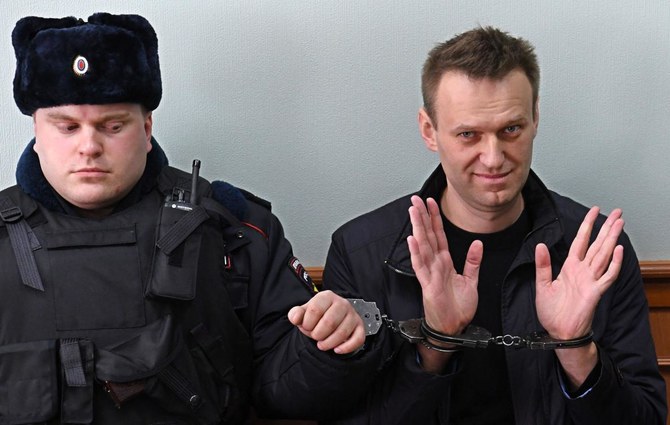Russian opposition leader Alexei Navalny died in an Arctic prison on Friday, as the enemy claimed.
For years, he was a vocal critic of dictator Vladimir Putin and his policies, and returned to Russia after recovering from a near-fatal poisoning attack that his supporters say was orchestrated by the Kremlin.
The Department of Prisons said he was imprisoned upon arrival and paramedics were unable to revive him on Friday when he lost consciousness after going for a walk.
During his time behind bars, the 47-year-old appeared in grainy videos from provisional court hearings daring him to criticize Putin over his attack in Ukraine.
His message – conveyed to fans through social media content – contrasts sharply with that of Putin, a 71-year-old former KGB agent who has ruled for more than 20 years.
“(Russia) is floundering in a pool of mud or blood, with broken bones, with a poor and robbed population, and around it lie tens of thousands of people killed in the most stupid and senseless war of the 21st century,” Navalny said. he said in one statement.
His criticism, which resonated with thousands of young supporters, has been a nuisance for the Kremlin, which human rights groups accuse of eliminating dissent by any means necessary.
His death will only exacerbate these fears.
In 2018, he campaigned across the country to become president, publicizing corruption investigations that embarrassed the Kremlin and drawing huge crowds on Russia’s streets.
His return to Russia in January 2021 despite facing prison put him on a collision course with Putin, after Navalny blamed the Siberian poisoning attack on the Kremlin.
“I am not afraid and I call on you not to be afraid,” he said in an appeal to his supporters upon his arrival in Moscow, moments before he was arrested on charges linked to an old fraud conviction.
His arrest sparked some of the largest demonstrations Russia has seen in decades, and thousands were arrested at rallies across the country to demand his release.
Navalny’s team responded to Putin by releasing “Putin’s Palace,” an investigation into a lavish Black Sea palace that his team claimed was gifted to Putin through corruption.
This revelation led to a rare denial from Putin, who quipped that if his security services had actually been behind the poisoning, they would have finished the job.
While Navalny confidently trafficked in memes, Putin is known for not going online and asking a teenager who wanted him to follow his YouTube channel: “What should I sign?” The clip was performed
A similar video about Navalny’s corruption targeting then-Prime Minister Dmitry Medvedev sparked massive demonstrations. In 2017, demonstrators carried rubber ducks that became a symbol of the protests.
Before the 2018 presidential election, Navalny toured cities across the country to rally support, but was barred from running due to an old fraud charge.
He told AFP at the time: “(Putin) fears me and the people I represent.”
Before that, he had challenged Sergei Sobyanin to become mayor of Moscow and was forced into a runoff.
At rallies and in courtrooms, Navalny has been a persuasive public speaker and rallied protesters around local slogans such as “party of crooks and thieves” to criticize the ruling United Russia party.
But it was tainted by an early foray into far-right nationalism, and a pro-gun video from 2007 comparing people from the former Soviet South Caucasus region to cockroaches has routinely resurfaced.
Navalny also remains a marginal figure for much of Russian society, which supports the Kremlin’s official portrayal of him as a Western agent and convicted criminal.
He has become a thorn in the Kremlin’s side and even Putin has refused to utter his name in public. His anti-corruption group has been shut down, and his top allies have been imprisoned or in exile.
Navalny’s team said he was harassed in prison and repeatedly transferred to a punishment cell.
He said guards subjected him and other prisoners to “torture at the hands of Putin,” forcing them to listen to the president’s speeches.
However, Navalny has been upbeat and sarcastic on social media accounts run by his aides, even despite his circumstances.
The lawyer by training has fought for basic rights and taken prison officials to court. He also tortured them, making formal requests for a kimono and balalaika – a traditional musical instrument – and to be allowed to keep kangaroos.
“You can’t shut my mouth,” he declared.






